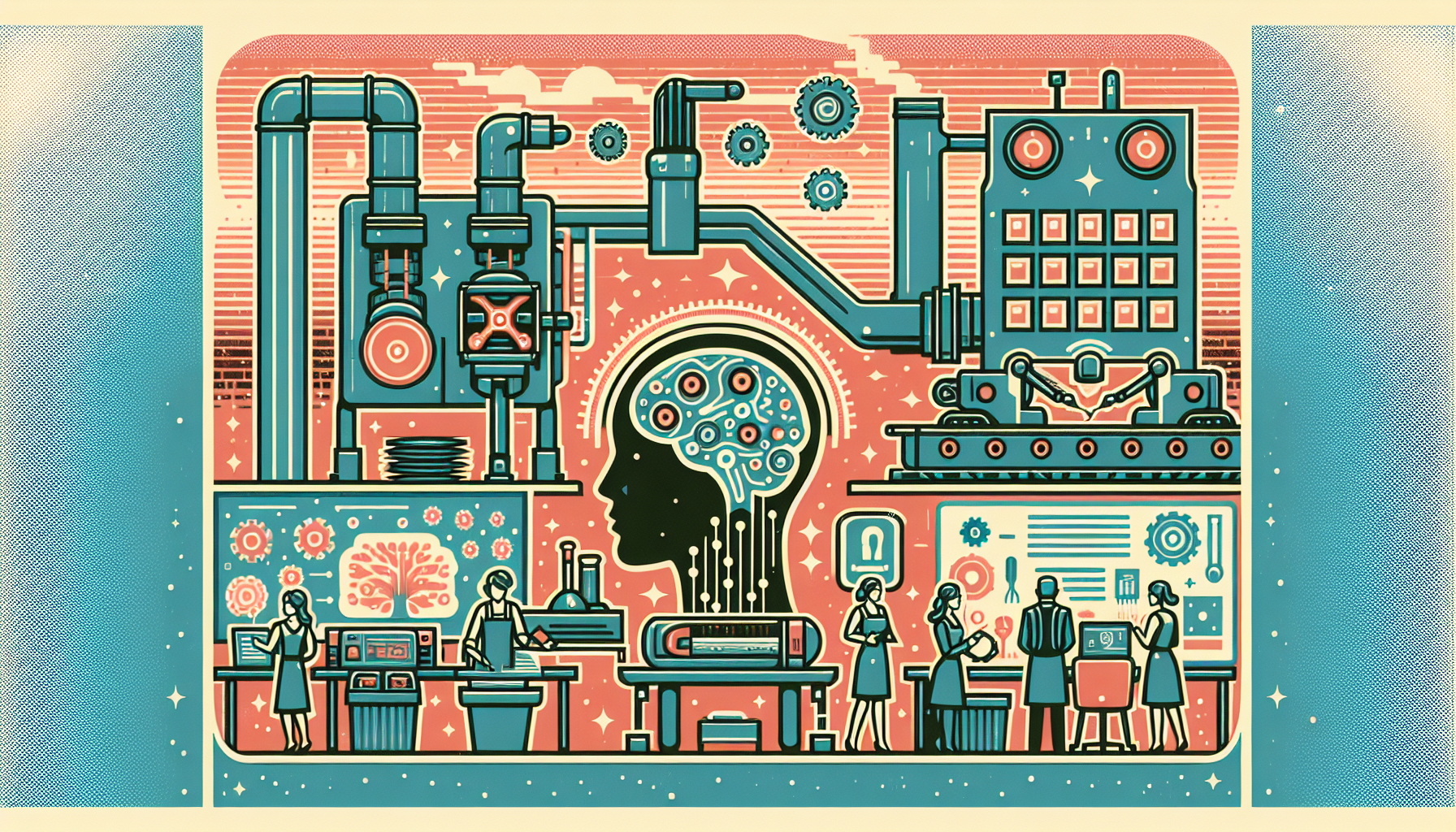The integration of Artificial Intelligence (AI) into manufacturing quality control is redefining how industries maintain the excellence and consistency of their products. This leap forward not only boosts accuracy and reduces costs but also enhances product reliability. Here’s a closer look at how AI is making waves.
Benefits of AI in Quality Control
AI offers transformative advantages for the quality control processes in manufacturing that can reshape entire operations:
Reducing Human Error
AI’s capacity to minimize human errors stands out as a major breakthrough. Human inspectors, even when diligent, can overlook flaws due to fatigue or oversight. AI, on the other hand, consistently spots errors, ensuring products meet the highest standards, thus bolstering brand image and customer satisfaction.
Strengthening Brand Reputation and Customer Satisfaction
Delivering top-notch products is crucial for earning trust and contentment from customers. AI identifies product defects early, reducing the chance of negative feedback or complaints. By ensuring pristine products reach customers, businesses enhance their reputations and nurture deeper customer bonds.
Meeting Regulatory Standards
Industries are often bound by strict compliance standards. AI systems effectively flag compliance issues, ensuring companies meet these requirements seamlessly, averting potential legal or monetary penalties associated with non-compliance.
Minimizing Waste
AI’s ability to detect unsuitable parts early in production curtails waste. By removing defects at the outset, manufacturers save costs and optimize resource use, reducing the batch of rejected end-products significantly.
Applications of AI in Quality Control
AI’s role in quality control extends beyond mere inspection, embracing a suite of applications that redefine manufacturing:
Ensuring Consistency
AI and machine learning fuse data from diverse sources to identify trends that drop quality. This consistency ensures raw materials and finished products remain high-quality.
Enabling Advanced Analysis
AI scrutinizes manufacturing error patterns, unveiling hidden issues. This proactive analysis aids manufacturers in addressing systemic problems resulting in heightened quality and reduced defects.
Forecasting Supply and Demand
With AI, predicting market needs becomes accurate. It models lead times, optimizing material calculation to meet demand, preventing supply chain hiccups, and fine-tuning production planning.
Seamless Integration with Automation
Marrying AI with existing automation and robotics amplifies speed and precision in quality processes. This synergy reroutes defunct items for extra analysis while forwarding valid ones for packing, streamlining operations.
How AI Quality Inspection Works
The AI-driven quality inspection process is sophisticated yet effective:
- Arrival and Positioning: Products are correctly placed for review.
- Image Capture: High-quality images are taken with optimal lighting.
- Image Preprocessing: Images are analyzed and formatted appropriately.
- Defect Detection: Sophisticated AI detects flaws using advanced algorithms.
- Decision Stage: Results undergo human review, finalizing product fate.
- Documentation: Findings are systematically logged for future reference.
Real-Time Quality Control and Predictive Analytics
AI empowers real-time inspection and monitoring, ensuring immediate corrective measures. This approach averts costly rework and assures quality and compliance throughout production. Predictive analytics further preempts defects by analyzing past data, allowing proactive adjustments to be made before issues arise.
Enhanced Data Analysis and Decision-Making
AI-driven quality management software aggregates insights from production metrics, supply chains, and customer feedback. These data-backed insights empower businesses to optimize operations, minimize waste, and align offerings closely with customer demands.
Cost Savings and Efficiency
AI’s introduction to quality control heralds notable savings and efficiency. By automating tasks, labor costs drop, and waste diminishes as defects are caught early. Round-the-clock operations sans fatigue compress production timelines, speeding up time-to-market and refining efficiency.
Predictive Maintenance
AI extends its predictive prowess to maintenance, analyzing various data to forecast machinery issues. Scheduled upkeep based on these insights curtails downtime, stretching equipment life, and fine-tuning maintenance use.
The Future of AI in Quality Control
The future beckons with even greater AI-led advancements. Enhanced IoT integration, evolving machine learning algorithms, and advanced monitoring promise an ever-greater role for AI in quality assurance. Companies harnessing AI will rise to meet the demand for high-quality goods, remaining competitive and agile in fast-paced markets.
AI’s integration into manufacturing quality control isn’t just changing the game; it’s creating a new one. Embrace the potential of AI for a future of unparalleled precision and efficiency.

Leave a Reply